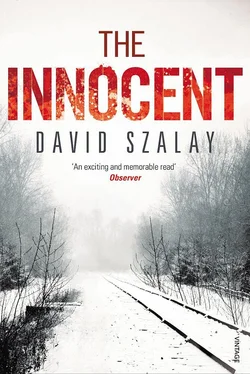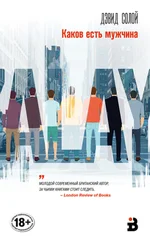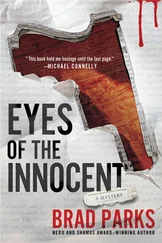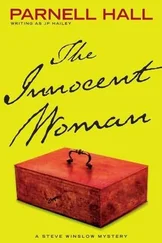It is a windy, overcast, September morning. Turning into Studencheskaya Street, he looks up from the paper. Ivan’s Lada is parked outside the flat – he has just tried the doorbell and is standing next to the tarnished-silver trunk of the cherry tree looking up at the first-floor windows. Then, seeing Aleksandr, he starts to walk towards him. It is obvious that he has not slept all night; he looks even more tired and puffy than he did yesterday. The pouches under his eyes are black and painful-looking. ‘Forget it,’ he says. ‘It’s rubbish.’
‘What is?’
‘What it says in the newspaper.’
‘What do you mean?’
‘They’re all dead.’
‘Who are?’
‘The hostages. They’re all dead.’
Aleksandr unlocks the door and they step into the damp hall.
‘Then why say they were all freed?’ he says quietly. ‘That’s a stupid lie …’
‘It wasn’t a lie,’ Ivan says. ‘It was a mistake.’ He looks terrible, ill. ‘The Germans announced that they had freed all the hostages and killed all the terrorists. That was at about 2 a.m. here, and we were told to go with it. Put it on the front page. Then two hours later an IOC spokesman said the first statement may have been “too optimistic”. Then they said everyone was dead. There was a firefight at the airport that went on for hours. It was a farce. In the end the terrorists just blew themselves and the hostages up. And we’d already printed that ,’ he says. ‘They wouldn’t wait. They’d heard what they wanted to hear and they told us to print it. And now I’m the one who looks like I’ve fucked up.’ He has tears in his eyes. ‘I’m sick of it, Sasha,’ he says.
‘Sick of what?’
‘I don’t know. I’m just worn out. I’m sorry. It’s been a terrible night.’
‘You need to sleep.’
‘Yes. Yes, I know.’ He lights a Golden Fleece and sighs exhaustedly. ‘Did I tell you about the leader of the terrorists,’ he says, ‘the one who wore a panama hat and had black shoe polish on his face?’
‘Yes.’
‘He was an extraordinary character. I saw the German TV pictures. He’d just spoiled the Olympic Games, he was totally surrounded, unlikely to survive, and he seemed so sure of himself, of what he was doing. It was extraordinary! And you know what I thought?’ Ivan laughs. ‘I thought, I should try to be more like him! Less emotional about everything. Less worried about what people will think of me.’
‘He was a fanatic.’
‘I worry too much, I know.’
‘You should go home and sleep, Vanya.’
‘They won’t make me editor now.’
‘It wasn’t your fault.’
‘Oh, they’ll make sure it was.’ Though he looks utterly miserable, he laughs. He never hides his feelings, his failures. Even when he tries, he is unable to. It is why people love him, in spite of everything. The very figure of a mature and worldly male, handsome and well dressed, he looks lost and tearful in his moment of failure. Standing there in the stone-floored hall, Aleksandr is unexpectedly filled with love for him. He smiles. ‘Never mind,’ he says, and still holding the newspaper, he embraces him. ‘You need some sleep, Vanya,’ he says, with his hands on his sleeves. ‘You need some sleep.’
When Ivan has left, Aleksandr walks slowly up the stairs, listening to the persistent yur-yurring of the Lada. He throws the newspaper onto the sofa and sits down. He sits there for a long time, in front his typewriter – an old machine which he salvaged from the office when the KGB invested in new electric ones in the late sixties. On most of its keys the white letter has been typed into an illegible scatter of specks. On some of them – A, E, И, O, Y, C, Ш – even into nothing, leaving the smooth tablet unmarked . He spools a new sheet of paper onto the cylinder. His thoughts have turned from the events of the summer of 1948 to those of the autumn.
He does not know where to start. Where indeed? In a sense the starting point would be all the way back in the spring, the night he returned from Metelyev Log for the first time. It was late, the electricity was off, and Irina was asleep. Stepping through the darkness, he kicked something – it sounded like a glass with a spoon in it. There was a sharp, furious shh! from the divan. ‘Sorry,’ he whispered, and there was another, softer shh , and she turned on the tired springs. He knew then that he had a secret. It was no more than an innocent little infatuation, nurtured on afternoons spent sitting at the table in the wooden house, the rain falling into the forest that started immediately outside the windows, the wood hissing and whining in the stove. Still, it was a secret, and the feeling of isolation took him by surprise as soon as he was in Irina’s sleeping presence. He undressed and slipped under the sheet, next to her warm weight, touching her warm legs and feet with his own. Sleepily she turned over to face him. For the next two months Nadezhda Lozovskaya did not seem part of the world they lived in – the world of Malyshev Street, and Lenin Prospekt, the MGB offices, and the thinly stocked shoe-shop where Irina worked. She was like a figment of his imagination. She was a figment of his imagination, whom he had no expectation of ever meeting under the spacious sky, in the wide streets of Sverdlovsk. He hardly noticed at first (to use a Sputnik-era metaphor) the mysterious pull on his settled orbit exerted by this seemingly weightless figment of his imagination – and its influence on his life was then more or less imperceptible, in effect no more than a sense of possibility.
He was innocently uxorious; he was the sort of man of whom it was said that he ‘never even looked at another woman’; his love for his wife, in the spring of 1948, was plain and natural – that is, it seemed plain and natural to him, when he thought about it at all. They had been married since 1934 – had lived since 1937 in the flat on Malyshev Street which they shared with Major Ivan Ivanovich Zalesky, and his wife and mother. Zalesky – to whom their room was ‘the ballroom’, with its peeling gilt moulding and vestigial chandelier – intermittently schemed to swap it for one of the two slightly smaller spaces in which he and his increasingly numerous family lived. He said they didn’t need all that parquet. They did not have an increasingly numerous family. They did not have a family at all. Irina had had two miscarriages in the mid-thirties – the second time having to deliver a dead thing, a dead son – and the experiences had left their mark on her. On him too, and on their life together. Most of all on her though. Her eyes, the lines of her mouth. She was not the same after that. She started to smoke herself to sleep in the mid-afternoon. He spent more time at work. The subject was not spoken of anymore. It was their sad secret.
THE DAY YOU got home from work early. It was September. Your hair was wet. Rain-sodden ringlets. ‘What is it?’ I said. I had been sleeping. I was working nights that week. ‘Why are you home so early? What’s happened?’ You started to wrench open drawers, and search violently through them. ‘What is it?’
‘I’ve been sacked,’ you said, tipping a drawerful of stuff onto the floor.
‘What are you doing?’
You tipped out another drawer.
‘Stop it! What are you looking for? What’s going on? Why were you sacked?’
You said you had had a brooch on the lapel of your coat when you went to work. At lunchtime it wasn’t there, and you had accused Svidersky’s wife of stealing it. Sviderskaya, of course, had instantly lost her temper. I was able to picture the scene. Pushing imperiously past you, she would have started shouting, ‘Miron! Miron!’ Her voice, when she told Svidersky what had happened, would have been quiet with fury. ‘How can you stand for this?’ she would have said. ‘How can you stand for this?’ Perhaps the second time her voice would have soared to a shriek, especially if you were standing there in tears. And Miron – old Miron Svidersky – would have shoved his whiskers into his weskit and shaken his head. He would have sighed.
Читать дальше












